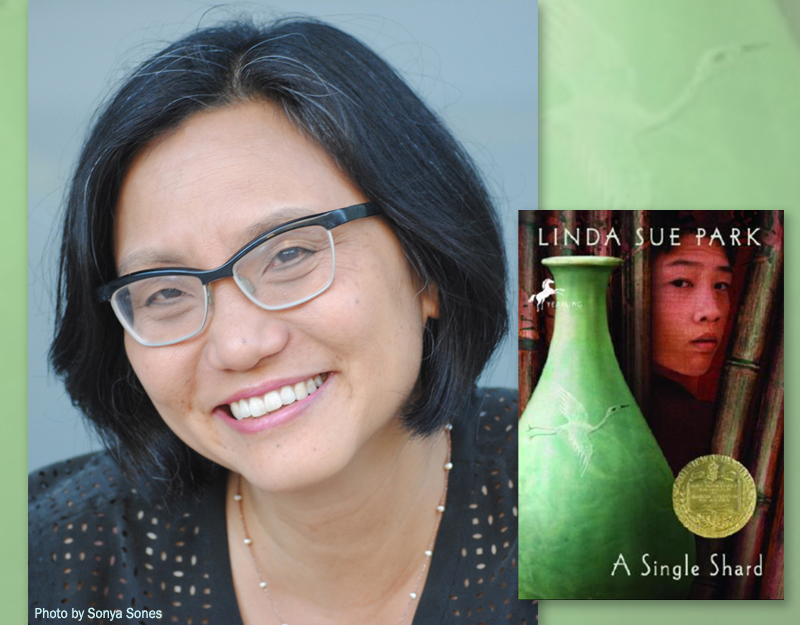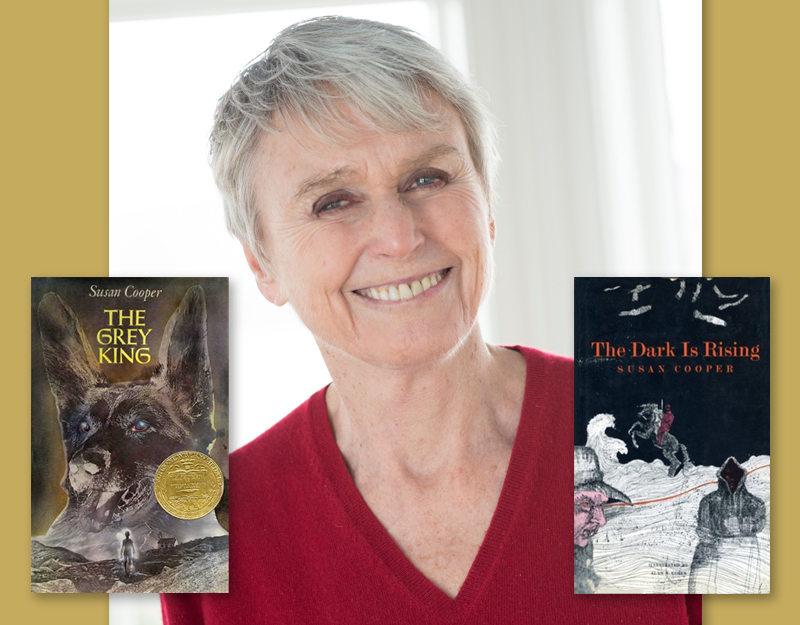Good Mocking
This Wednesday, Steven Engelfried leads an ALSC Webinar on his newly revised Newbery and Caldecott Mock Elections Toolkit. If you’ve ever wondered about setting up your own mock election, I highly recommend checking this out.
This blog evolved from a Mock Newbery group that I’ve been holding in Oakland CA since 2003. The blog at first was simply a feeding ground for ideas, and collation of logistics. It still operates as such, but it also clearly has a life beyond the local group that still meets annually. I modeled our Mock Newbery discussions on the ones I’d attended at the Cooperative Children’s Book Center (CCBC) at the UW Madison, where I was in library school.
ADVERTISEMENT
ADVERTISEMENT
The initial draw for participants, certainly, is in the idea that we might be predicting some of the actual winners of the award. But any true prediction is impossible, and so the real basis of the gathering…and the thing that makes people come back year to year…is the thrill of engaging in such deeply detailed book discussion with peers, face to face, and modeling the voting/consensus process that the real committee uses to come up with a Mock Medal.
So too the ferreting out of eligibility issues. Whether or not a book’s eligibility is known, whether we have access to the archive of previous decisions for precedence… for me the fun is in digging through the manual, looking for precedence ourselves, and then making a gamble one way or the other. If A MONSTER CALLS seems like it’s strong enough to make Jonathan’s and my top 10, then we might be able to do enough sleuthing ourselves to make a pretty good call.
In a comment on that post, I said somewhat cattily: “it’s not our game,” referring to the hope for anything we say on this blog to influence the actual committee proceedings. But a Mock discussion IS our game…and if it wasn’t any fun we wouldn’t be here.
Soon you’ll hear more from me and Jonathan about how we’ll be organizing both an online “election,” and the local live discussion and election just before the actual awards are announced. For any of you who can’t make it to Oakland on a Sunday in January, I do encourage you to think about trying to assemble a room of warm bodies…as it’s even more fun to mock it in person.
Filed under: Uncategorized
About Nina Lindsay
Nina Lindsay is the Children's Services Coordinator at the Oakland Public Library, CA. She chaired the 2008 Newbery Committee, and served on the 2004 and 1998 committees. You can reach her at ninalindsay@gmail.com
ADVERTISEMENT
ADVERTISEMENT
SLJ Blog Network
One Star Review, Guess Who? (#202)
This Q&A is Going Exactly As Planned: A Talk with Tao Nyeu About Her Latest Book
Exclusive: Giant Magical Otters Invade New Hex Vet Graphic Novel | News
Parsing Religion in Public Schools
Take Five: LGBTQIA+ Middle Grade Novels
ADVERTISEMENT








Nina said: “I expect that *nothing* we say here bears on any eligibility decision. It is possible that someone might pick up a point here and further research it, but–folks–it’s not our game.”
I say, “Amen to that!”
What’s the point of all this back-and-forth on a book’s eligibility when, as you say, it’s ultimately “not our game”?
If, for example, A MONSTER CALLS is honored by the committee, we’ll know it was obviously eligible.
If it’s not honored, we’ll never know whether it WASN’T eligible OR whether it WAS deemed eligible, but not chosen for other reasons.
However, when you talked about committee members picking up a point from the HM discussion, it made me think of a topic I’d love to see you address in a future HM post.
As a former committee member, you (and Jonathan) would be the perfect ones to answer this question: how much, if any, influence do Mock Award blogs play in the eventual Newbery decision? I’m assuming that at least some of the real committee members follow the mock awards. Last year I was convinced that the praise DARK EMPEROR received on HM, followed by its showing in the Oakland Mock Newbery, probably contributed to the book eventually being named a Newbery Honor. I could be wrong, but have a feeling it might not have gotten serious consideration otherwise.
Conversely, I can’t help but wonder if committee members experience a little thrill selecting a book (like MOON OVER MANIFEST) that the mock panels have virturally ignored. NOT that I think they’d ever deliberately pick an unknown book to “surprise” the public, but I still wonder if this could play into the voting at some point….
I know, usually when I venture my opinions on the Newbery I’m told that there are factors built into the discussion/voting procedures to prevent these things from happening. But I am curious: DO Mock Awards have any affect on the real award???
Thanks,
Peter
I’m sure that many committee members look at Mock Award results, and follow blog discussions, as they’d also read reviews, and seek out colleagues’ and child readers’ opinions on the titles their considering. All of these things may help them clarify their own thinking about any given title.
But when they sit down at a table to discuss their top titles for 2-1/2 days straight…they may only voice their own opinions. So, although our discussions may play a role in any one committee member’s judgement-forming… our discussions are really a drop in the pond.
I don’t think that the mock award *results* exert much influence, since there’s lots of them, and they’re working from a necessarily smaller pool of books, and within a less rigorous process, than the committee members. When I was on the committee, the mock results didn’t say anything helpful or interesting to me.
There’s arguments both ways to keeping an “open” or “closed” mind when you’re on the committee. It’s important to be open to hearing different opinions on a title, in order to see where your own biases or personal reading tastes may be interfering with your evaluation of a title. But at some point you have to value the fact that you were selected to be 1/15th of this big decision for a reason, and stake your position.
All of this too is a little different from the decisions on eligibility. Again, the eligibility decisions are based on whatever evidence the committee et al can dig up re a book’s creation or author’s residency… and then on interpretation of the definitions, with the knowledge of precedent. It’s possible that someone on this blog could mention a piece of evidence that hadn’t been considered, that someone on the committee would take notice, and that that would enter into the decision making. But since others are already charged with that task, it’s unlikely that we’d uncover anything that hadn’t already been considered. And whether *we* think a book should be eligibile or not matters…but it just matters to us.
Peter said: “What’s the point of all this back-and-forth on a book’s eligibility when, as you say, it’s ultimately “not our game”?”
As I alluded to elsewhere: it’s maybe not the most fascinating discussion, but I think eligibility discussions have been a valuable learning tool. Many people come to Heavy Medal not knowing the eligibility rules.
I think mock awards have zero impact on the committee. Committee members do take notice, they take notice of everything (as Nina suggested), but it’s never discussed as a committee. The only thing such results might help me do, personally, is catch a title that I hadn’t considered (or, more likely, considered as closely as I should). We’d love to take credit for DARK EMPEROR, but alas it’s due to the hard work of that committee and the distinguished features of that text.
Peter, this particular committee member did follow this blog – quite closely, in fact – and wasn’t affected at all in terms of opinion making. It was helpful for me, at least, to see the discussion that took place in the comments, and to see the way that Jonathan and Nina (and others in the comments) defended their views. But one thing you mention is DEFINITELY true – as a lover of MOON OVER MANIFEST from the first time I read the ARC (back in April), it WAS thrilling – and pretty funny – to see it get just a passing mention on this blog, and to read the shocked comments immediately following the announcement! It also ruffled my feathers a bit to hear people saying things about MY book that (admittedly) I had said about other Medal winners in the past. But mostly, I’m just happy to be associated with the committee that picked such a wonderful book!
In terms of the REAL fun of Heavy Medal (for me at least), here is the key section of Nina’s post:
“The initial draw for participants, certainly, is in the idea that we might be predicting some of the actual winners of the award. But any true prediction is impossible, and so the real basis of the gathering…and the thing that makes people come back year to year…is the thrill of engaging in such deeply detailed book discussion with peers, face to face, and modeling the voting/consensus process that the real committee uses…”
Some mocks may pick the actual winner by chance, but as Nina says, “any true prediction is impossible”…
I have depended on you all for your guidance in discussions through the years. Guiding the kids through discussions of “distinguished literature” has been a treat! I have occasionally brought your blog discussion to our meetings to share with the middle school kids who read April through Jan. THANK YOU for your work here!